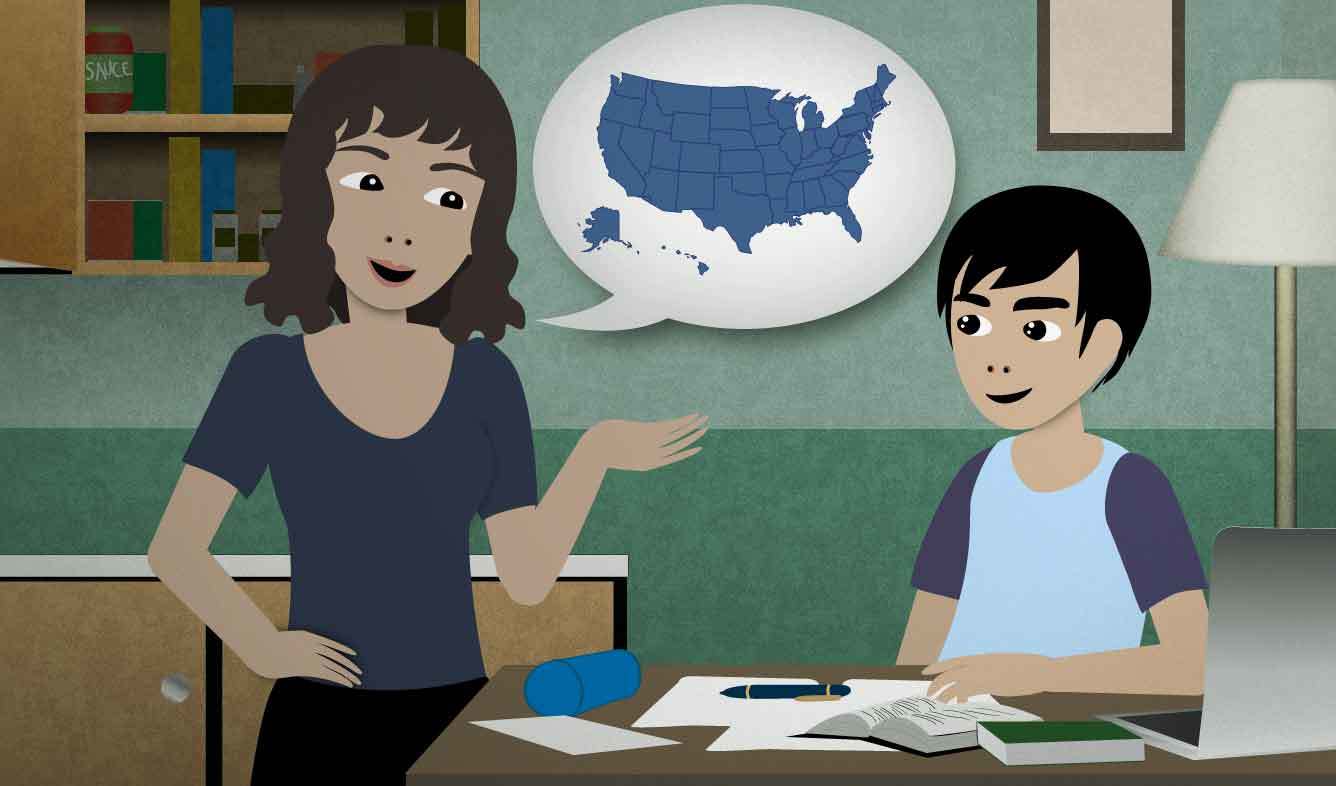“I bet you five bucks that you can't name all of the states in the United States without looking them up.”
You're babysitting your nine-year-old neighbor. You know kids like to compete, so you give him a fun educational challenge.
I bet you five bucks that you can't name all of the states in the United States without looking them up.
Want Video and Sound? Follow us on YouTube

(number) bucks
"Bucks" is a slang term for "dollars". It's used in casual conversation.
I bet you (an amount of money)(clause)
In a serious bet, you pay money to someone if they've guessed correctly, and they pay you if you guessed correctly. To start a bet, you say "I bet you (some amount) that (something will happen). For example:
I bet you twenty bucks that you can't name all of the states in the United States without looking at a map.
But people also use this form when talking in casual situations just to show that they're really sure of their guesses. In this type of situation, the two people aren't really making a bet. In the example above, it's not clear whether the speaker is really making a bet or not. The other person needs to ask whether the speaker is serious.
To make it clear that you're not really making a bet, you can give an exaggerated wager:
“I bet you a million dollars the Mets are going to lose.”
Or you can leave the amount out:
I bet you the Mets are going to lose.
By the way, when I pronounce "bet you" it sounds like "betcha" or "betchu".
look (something) up
"Looking up" some information means searching for somewhere like:
- on the Internet
- in a book
- in some files
Most of the time, you use the phrase "look ___ up" when you were successful at finding the information that you were looking for. So you'd say something like this if you weren't successful:
I tried looking it up online but I couldn't find anything useful.
Like a lot of phrasal verbs, "look up" can be separated by words like "it", "them", "us":
Don't believe me? Look it up.
But longer words come after "up":
I looked up how far away the closest star is, and I was amazed at how far it was.
the United States
When you talk about the United States, you have to put "the" in front:
She's from the United States
There are some cases where you don't use "the" in front, though. Like when you're using "United States" just as a description for something else:
He's a United States citizen.
A few other countries also follow the same pattern:
the Netherlands
the Phillipines
